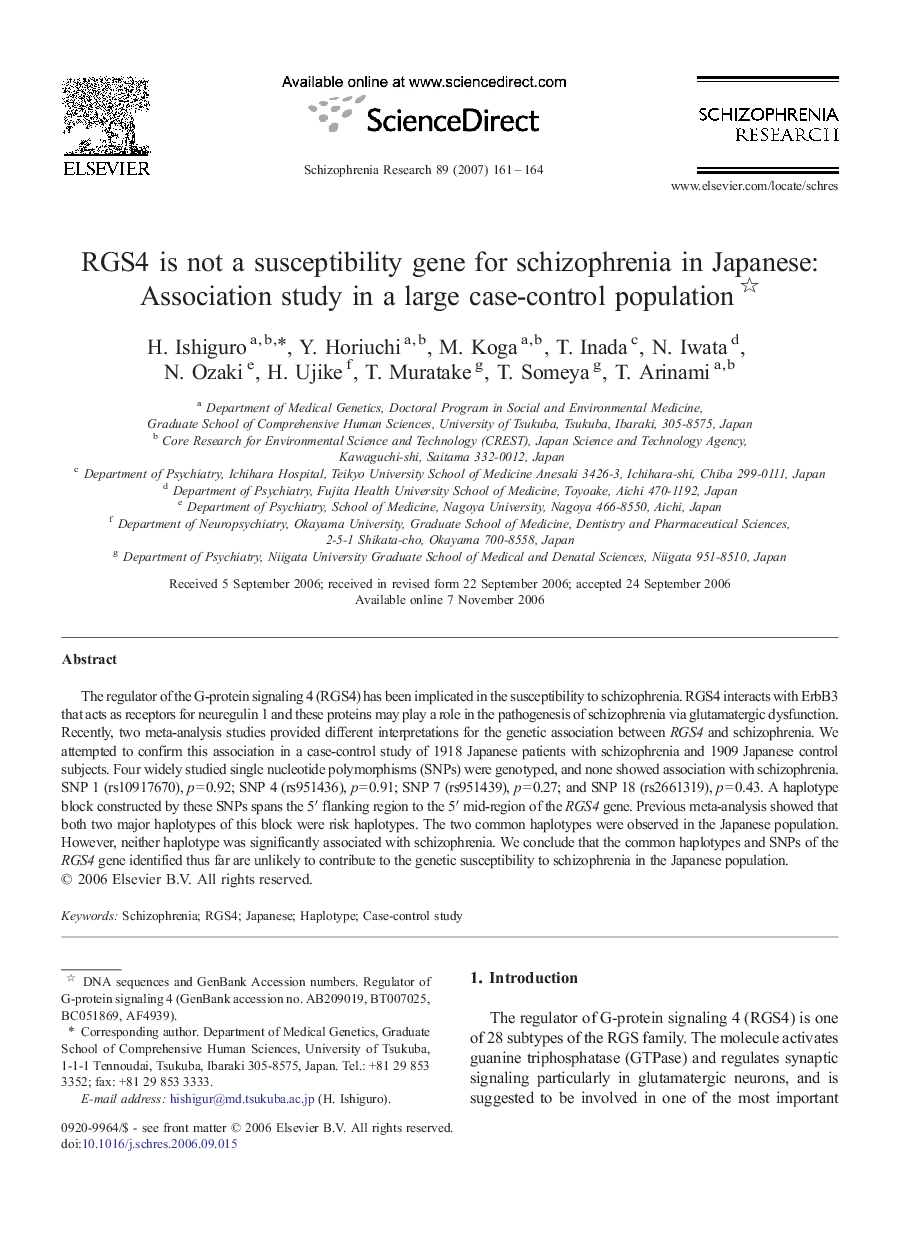| Article ID | Journal | Published Year | Pages | File Type |
|---|---|---|---|---|
| 339701 | Schizophrenia Research | 2007 | 4 Pages |
The regulator of the G-protein signaling 4 (RGS4) has been implicated in the susceptibility to schizophrenia. RGS4 interacts with ErbB3 that acts as receptors for neuregulin 1 and these proteins may play a role in the pathogenesis of schizophrenia via glutamatergic dysfunction. Recently, two meta-analysis studies provided different interpretations for the genetic association between RGS4 and schizophrenia. We attempted to confirm this association in a case-control study of 1918 Japanese patients with schizophrenia and 1909 Japanese control subjects. Four widely studied single nucleotide polymorphisms (SNPs) were genotyped, and none showed association with schizophrenia. SNP 1 (rs10917670), p = 0.92; SNP 4 (rs951436), p = 0.91; SNP 7 (rs951439), p = 0.27; and SNP 18 (rs2661319), p = 0.43. A haplotype block constructed by these SNPs spans the 5′ flanking region to the 5′ mid-region of the RGS4 gene. Previous meta-analysis showed that both two major haplotypes of this block were risk haplotypes. The two common haplotypes were observed in the Japanese population. However, neither haplotype was significantly associated with schizophrenia. We conclude that the common haplotypes and SNPs of the RGS4 gene identified thus far are unlikely to contribute to the genetic susceptibility to schizophrenia in the Japanese population.
